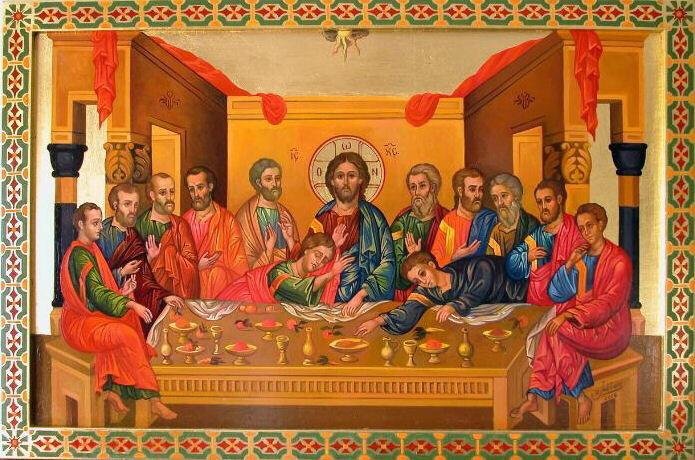As you probably know from experience, our Divine Liturgy is a concelebration of people and celebrant. This finds particular expression in the eucharistic prayers which are all, without exception, structured as dialogues. Every prayer is sealed by the gathering with one of the key words of Christian worship, AMEN, thus binding the celebrant and the people of God at whose head he stands into one organic whole. Every prayer – with the exception of the prayer of the priest himself which is said by the celebrant during the Cherubic Hymn, is spoken on behalf of all present. All of the constituent parts of the solemn eucharistic ceremony – the reading of the Word of God, the Anaphora, the Partaking of Communion – unite all of us to one another and we become partakers in the communion of the Holy Spirit.
The same may be said of the individual rites of the eucharist. All express to some degree not only the unity of the celebrant and the people but also their synergy – their concelebration and collaboration. Thus, the reading of the Word of God (i.e., Epistle and Gospel) and its elaboration in the sermon – which according to unanimous testimony of all early evidence comprises the first part of the eucharistic celebration – self-evidently presupposes listeners, people who receive the preaching.
I would digress just briefly and make a comment on the sermon. I would again exhort you to think about the readings that you hear and make sure that you attempt to find the particular message you are supposed to receive. This is the way that I view the sermon. The sermon is my attempt to model for you what message I received from the readings. I do not attempt to state that the message that I share is the message you have to receive. You may, as you listen to the readings, receive a totally different message. The readings all have multiple layers of meanings. There is never, I believe, only one message to any Epistle or Gospel. I find the truth of this by the fact that even though we repeat the same readings every year, each time I read them I tend to get a different message. So, while I am thankful that you listen to me, I do hope that you never are afraid to derive some message for yourself. The Holy Spirit moves within all of us, helping us to find the message that we need to continue our spiritual growth.
The Divine Liturgy, up to and including the sermon, is called the Liturgy of the Word. In the early Church, the Assembly (Church) would first listen to letters sent by one of the Apostles or share stories about the life of Christ before they would partake of the meal and communion. The first part, because it has most of the prayers that change, requires us to use books.

